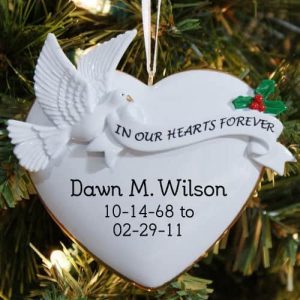Dealing with Grief
“We live in a culture where we expect instant results. We want the fastest acting pain relief, the quickest Internet service and the easiest path through hardship. But we must all try to remember that there is no drive-thru-window solution for grief.” by Todd Little, Bereavement Service Professional
I’ve read a lot about grief over the years and this is one of the best articles I’ve found. I do hope you find it helpful.
Dealing with Grief
We live in a culture that avoids emotional discomfort. In fact, our society makes it easy to look for distractions and diversions from all things painful. If we can drink, eat, shop, play or Facebook grief away, we will.
But here’s the truth — losing a loved one is excruciatingly painful. And it doesn’t just hurt for a few days, a few weeks, a few months, or even a few years. The impact of a major loss is lifelong. Emotional “closure” is a cultural myth.
Why? Because no matter how many years go by — 10, 20, 30 — you will be changed irrevocably. You may think of your dear one almost daily and you will have days out of the blue that knock the wind right out of you. Certainly, the pain softens and eases over time. However, normal grief will always have moments of reoccurring sharpness, pain as raw as the very first day.
Grief Has a Purpose
But, consider this. If I suggested that I could wave a magic wand and make all of your enduring pain disappear instantly — with only one catch, that you would never have known your dear one… ever, they never would have been born — would you take that bargain?
No, you wouldn’t. And you wouldn’t because that relationship, that love, touched and enriched your life immeasurably. Your life without their physical presence is painful but your life having never known them at all is unthinkable. Their love was, and continues to be, a great gift.
Living with loss has no closure on pain but, thankfully, it also has no closure on love. Transcending loss is the process of learning to live with love and loss side by side in a way that brings greater meaning and purpose into our lives. Develop a practice of reflecting on the following three points and you will find that pain and love will become easier lifelong companions.
Loss is lifelong
Loss is our most universal experience. We carry the remnants of loss with us every day. Let yourself grieve and feel your pain, riding the waves of feeling. While other people may tell you to “get over it,” understand that “normal” grief never quite goes away. While it changes over time, its impact endures. Gentle acceptance of this fact allows you to begin to integrate loss into your life.
Love is eternal
You are still in a relationship with your dear one. This love is an integral part of who you are. Let yourself talk about your loved one, reminisce, look at photographs, and stay connected to this person who made such an enduring impact on you. Consider lighting candles in their honor on special days and/or giving gifts in their honor. They will always be a part of your life.
You are changed
Don’t expect to return to your “old self.” You are living into a new self. This self has new attitudes toward life, toward death, toward spirituality and toward your own life’s meaning and purpose. Other people may have trouble with your changes, but let them know that change is a natural part of living. Be open to new aspects of yourself coming alive. As you let yourself be changed, you will find that growth is possible.
Cultivating a more open position toward your grief will enable you to live with it more peacefully. Remember that after a death, love and loss go hand-in-hand. Closure on one would mean closure on the other. Fortunately, love is a benevolent force in our world that we simply cannot live without.
From the Huffington Post http://www.huffingtonpost.com/ashley-davis-bush/grief_b_1553523.html
You also may find the work of Alan D. Wolfelt, Ph.D. below helpful…
Helping Yourself Heal When Someone Dies
by Alan D. Wolfelt, Ph.D.
Someone You Love Has Died
You are now faced with the difficult, but important, need to mourn. Mourning is the open expression of your thoughts and feelings regarding the death and the person who has died. It is an essential part of healing. You are beginning a journey that is often frightening, painful, overwhelming, and sometimes lonely. This article provides practical suggestions to help you move toward healing in your personal grief experience.
Realize Your Grief is Unique
Your grief is unique. No one will grieve in exactly the same way. Your experience will be influenced by a variety of factors: the relationship you had with the person who died; the circumstances surrounding the death; your emotional support system; and your cultural and religious background.
As a result of these factors, you will grieve in your own special way. Don’t try to compare your experience with that of other people or to adopt assumptions about just how long your grief should last. Consider taking a “one-day-at-a-time” approach that allows you to grieve at your own pace.
Talk About Your Grief
Express your grief openly. By sharing your grief outside yourself, healing occurs. Ignoring your grief won’t make it go away; talking about it often makes you feel better. Allow yourself to speak from your heart, not just your head. Doing so doesn’t mean you are losing control, or going “crazy.” It is a normal part of your grief journey.
Find caring friends and relatives who will listen without judging. Seek out those persons who will walk with, not in front of, or behind you in your journey through grief. Avoid persons who are critical or who try to steal your grief from you. They may tell you, “Keep your chin up,” or “Carry on,” or “Be happy.” While these comments may be well-intended, you do not have to accept them. You have a right to express your grief; no one has the right to take it away.
Expect to Feel a Multitude of Emotions
Experiencing loss affects your head, heart, and spirit. So you may experience a variety of emotions as part of your grief work. Confusion, disorganization, fear, guilt, relief, or explosive emotions are just a few of the emotions you may feel. Sometimes these emotions will follow each other within a short period of time. Or they may occur simultaneously.
As strange as some of these emotions may seem they are normal and healthy. Allow yourself to learn from these feelings. And don’t be surprised if out of nowhere you suddenly experience surges of grief, even at the most unexpected times. These grief attacks can be frightening and leave you feeling overwhelmed. They are, however, a natural response to the death of someone loved. Find someone who understands your feelings and will allow you to talk about them.
Allow for Numbness
Feeling dazed or numb when someone dies is often part of your early grief experience. This numbness serves a valuable purpose: it gives your emotions time to catch up with what your mind has told you. This feeling helps create insulation from the reality of the death until you are more able to tolerate what you don’t want to believe.
Be Tolerant of Your Physical and Emotional Limits
Your feelings of loss and sadness will probably leave you fatigued. Your ability to think clearly and make decisions may be impaired. And your low-energy level may naturally slow you down. Respect what your body and mind are telling you. Nurture yourself. Get daily rest. Eat balanced meals. Lighten your schedule as much as possible. Caring for yourself doesn’t mean feeling sorry for yourself; it means you are using survival skills.
Develop a Support System
Reaching out to others and accepting support is often difficult, particularly when you hurt so much. But the most compassionate self-action you can do at this difficult time is to find a support system of caring friends and relatives who will provide the understanding you need. Find those people who encourage you to be yourself and acknowledge your feelings – both happy and sad.
Make Use of Ritual
The memorial ritual does more than acknowledge the death of someone loved. It helps provide you with the support of caring people. Most importantly, the funeral or life celebration is a way for you to express your grief outside yourself. If you eliminate this ritual, you often set yourself up to repress your feelings, and you cheat everyone who cares of a chance to pay tribute to someone who was, and always will be, loved.
Embrace Your Spirituality
If faith is part of your life, express it in ways that seem appropriate to you. Allow yourself to be around people who understand and support your religious beliefs. If you are angry at God because of the death of someone you loved, realize this feeling as a normal part of your grief work. Find someone to talk with who won’t be critical of your feelings of hurt and abandonment.
Allow a Search for Meaning
You may find yourself asking, “Why did he die? Why this say? Why now?” This search for meaning is often another normal part of the healing process. Some questions have answers. Some do not. Actually, the healing occurs in the opportunity to pose the questions, not necessarily in answering them. Find a supportive friend who will listen responsively as you search for meaning.
Treasure Your Memories
Memories are one of the best legacies that exist after someone loved dies. Treasure them. Share them with your family and friends. Recognize that your memories may make you laugh or cry. In either case, they are a lasting part of the relationship that you had with a very special person in your life.
Move Toward Your Grief and Heal
The capacity to love requires the necessity to grieve when someone loved dies. You cannot heal unless you openly express your grief. Denying your grief will only make it become more confusing and overwhelming. Embrace your grief and heal.
Reconciling your grief will not happen quickly. Remember, grief is a process, not an event. Be patient and tolerant with yourself. Never forget that the death of someone loved changes your life forever. It’s not that you won’t be happy again. It’s simply that you will never be exactly the same as you were before the death.
The experience of grief is powerful. So, too, is your ability to help yourself heal. In doing the work of grieving, you are moving toward a renewed sense of meaning and purpose in your life.
If this has been helpful, you may want to consider reading more of Alan D. Wolfelt’s work.
More helpful resources:
How to keep their memory alive. A list of books about grief with reviews. Memorial Jewelry. More personalized gifts for remembering your loved one.


















